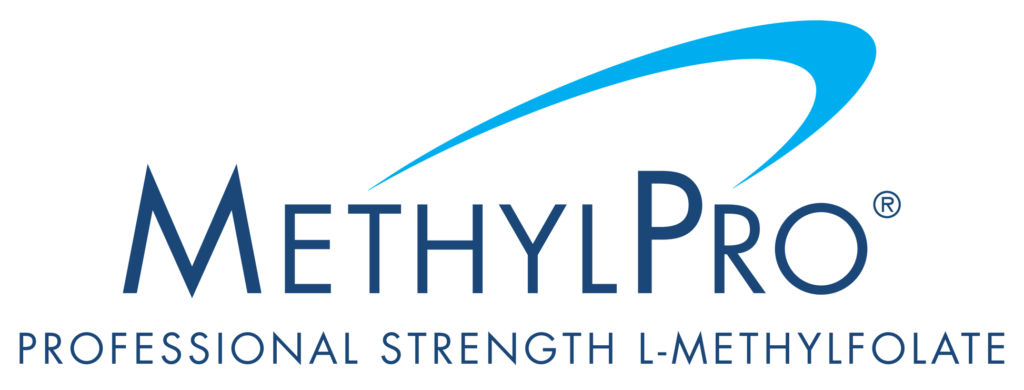The Roles of Methylfolate in Detoxification: What You Need to Know
If you’ve been told you have an MTHFR mutation, you’ve probably heard about its connection to folate metabolism and methylation, and likely how these issues manifest in your mental wellness. But there’s another important piece of the puzzle you might not hear about as often: detoxification. The MTHFR gene plays important roles in detox pathways.
Your body is constantly exposed to things it needs to eliminate: metabolic byproducts, environmental chemicals, old hormones, even excess neurotransmitters. Methylation (which depends heavily on MTHFR function) plays a surprisingly central role in how well your body handles that biochemical housekeeping.
In this article we will dig into the science of how MTHFR contributes to detox pathways, and what happens when this gene isn’t working at full capacity.
What is MTHFR, and What Does It Do?
The MTHFR gene provides instructions for making the MTHFR enzyme (methylenetetrahydrofolate reductase) that helps convert folate (vitamin B9) into its active form: L-methylfolate.
This active folate is the key ingredient in producing methyl groups—tiny chemical tags that your body uses in dozens of reactions, including: DNA repair, neurotransmitter synthesis, hormone metabolism, cardiovascular support, and detoxification.
The whole process is called methylation, and without enough methyl groups, your body’s cellular cleanup crews start falling behind on their tasks.
Detox Pathways That Depend on Methylation
Methylation affects detox in two major ways:
1. Breaking Down Hormones
Estrogen, for example, requires methylation for efficient breakdown and elimination. Impaired methylation can lead to imbalanced levels of estrogen or buildup of estrogen metabolites [1].
2. Eliminating Heavy Metals and Toxins
Methylation supports the transsulfuration pathway. The transsulfuration pathway involves the transfer of sulfur, converting homocysteine to cysteine, a precursor for glutathione production. Glutathione then helps neutralize and eliminate: mercury [2], arsenic [3], cadmium [4], bisphenol A (BPA) [5], pesticide residues, and other toxins [6].
Poor MTHFR function can lead to elevated homocysteine, a byproduct of methionine metabolism. Imbalanced homocysteine isn’t just a risk to cardiovascular risk factor, it can also impair the transsulfuration pathway [7]. In other words, when methylation is impaired, your body may struggle to produce enough glutathione, one of the body’s most important detoxifiers [7].
What Happens if You Have an MTHFR Mutation?
Variants, such as the highly common C677T or A1298C mutations reduce the activity of the MTHFR enzyme, meaning your body produces less functional L-methylfolate. Less L-methylfolate means fewer methyl groups, creating a bottleneck for detoxification processes downstream that rely on methylation.
In short, your internal clean-up crew might be running at reduced capacity.
What Can You Do About It?
The good news is, there are ways to support methylation and detoxification, even if you have a mutation.
1. Supplement with L-Methylfolate
Instead of relying on your MTHFR enzyme to make it, you can take supplementary L-methylfolate which is pre-methylated or “active” folate that bypasses the need for MTHFR activity.
2. Support Cofactors
Methylation doesn’t run on folate alone [8]. It also requires methyl nutrients including riboflavin (vitamin B2), cobalamin (vitamin B12), pyridoxine (vitamin B6) and choline (vitamin B4), as well as methionine and betaine, which act as substrates and cofactors in the methylation process [8].
Even a high dose of L-methylfolate will have little effect on methylation if these other cofactors are not present in adequate amounts.
3. Optimize Your Liver and Gut
A healthy liver and microbiome can help pick up the slack in detoxification. Consider supporting these systems with:
- Cruciferous veggies provide a whole food source of sulforaphane and DIM. Sulforaphane supports liver health for natural detox pathways [9], and DIM supports hormonal detoxification and estrogen balance [10].
- Dietary fiber supports both regular elimination by the bowels and detox pathways within the microbiome [11].
- Glutathione supplementation. If you are concerned about your glutathione levels being affected by your MTHFR variant, glutathione can be supplemented directly to support detox pathways, and provides general support for antioxidant activity throughout the body.
One Last Thing: Start Low, Go Slow
When you start methylated nutrients like L-methylfolate, your body may need time to adjust, especially if you’ve been running low for a long time. Some people feel energized right away. Others may feel overstimulated if they take too much, too fast.
It is prudent to start with a low dose and gradually increase as needed, but always under the guidance of a healthcare practitioner who is familiar with MTHFR and methylation.
The Bottom Line
The MTHFR gene plays a silent but significant role in your body’s detoxification pathways. If you have a mutation that affects its function, you may be more sensitive to your environment because your system isn’t clearing waste as efficiently.
Supporting methylation with the right form of folate (L-methylfolate) and its cofactors can help restore balance to your detox pathways, improve your resilience, and give your cells the reset they need.
References
- https://www.drdanielmetzger.com/posts/estrogen-metabolism-detoxification-methylation
- https://www.mdpi.com/2305-6304/11/12/967
- https://www.tandfonline.com/doi/abs/10.1080/15287390600755240
- https://www.sciencedirect.com/science/article/abs/pii/S0162013408002171
- https://www.mdpi.com/2076-3921/9/5/405
- https://www.mdpi.com/1422-0067/16/12/29592
- https://pmc.ncbi.nlm.nih.gov/articles/PMC2716415
- https://agro.icm.edu.pl/agro/element/bwmeta1.element.agro-bb57243a-e14d-4465-b935-9fd8db103b41
- https://www.frontiersin.org/journals/pharmacology/articles/10.3389/fphar.2023.1256029/full
- https://link.springer.com/article/10.1186/s12906-024-04708-7
- https://www.cell.com/cell-host-microbe/abstract/S1931-3128(24)00226-9

